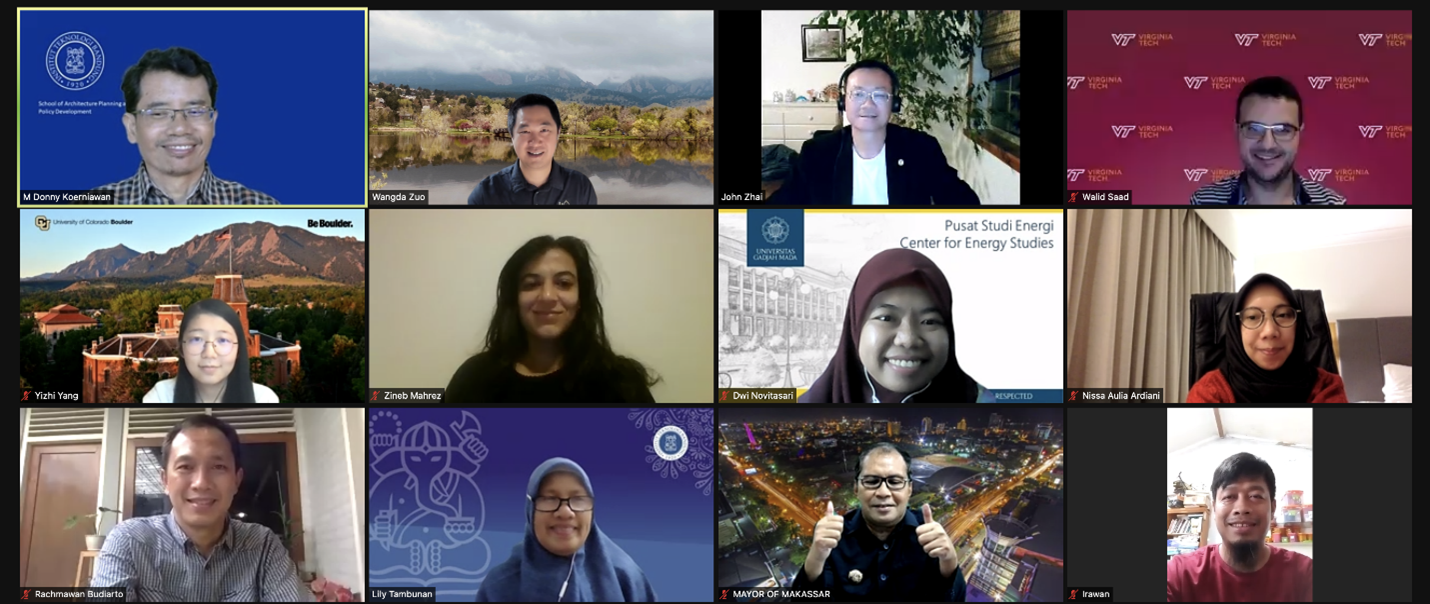
This December, Professor Wangda Zuo and undergraduate researcher Nathan Kurtz visited Makassar, Indonesia as part of their collaboration with the city in the NSF-funded Smart Garden Alley Project. During their visit, they met with many project collaborators and community organizers to learn more about Makassar’s ambitious plan to create circular economies – which have the potential to generate less material waste and pollution, increase sustainability, and decrease burdens on marginalized communities – in city alleys. With the help of the city, Makassar residents have improved drainage, created community and hydroponic gardens, and have started fish farms in alleys. Residents have shared the produce, fish, and lobster harvested from these alleys within the neighborhood and have also sold them to cover garden maintenance costs. The SBS Lab is analyzing sensor data with AI to help residents ensure optimal garden conditions.
During their visit, Professor Zuo also talked with researchers from the Institut Teknologi Bandung and the Indonesia University of Education to learn about localized sustainable improvements for Indonesians, including low cost cool roof technologies. We thank everyone involved with the visit for their hospitality, especially Mayor Moh. Romdhan Pomanto, Donny Koerniawan, and Beta Paramita. We look forward to more productive collaboration!
We also thank the National Science Foundation and the US Department of State’s US-ASEAN Smart Cities Partnership for their generous funding.
Picture: visiting Institut Teknologi Bandung and the Indonesia University of Education.






















